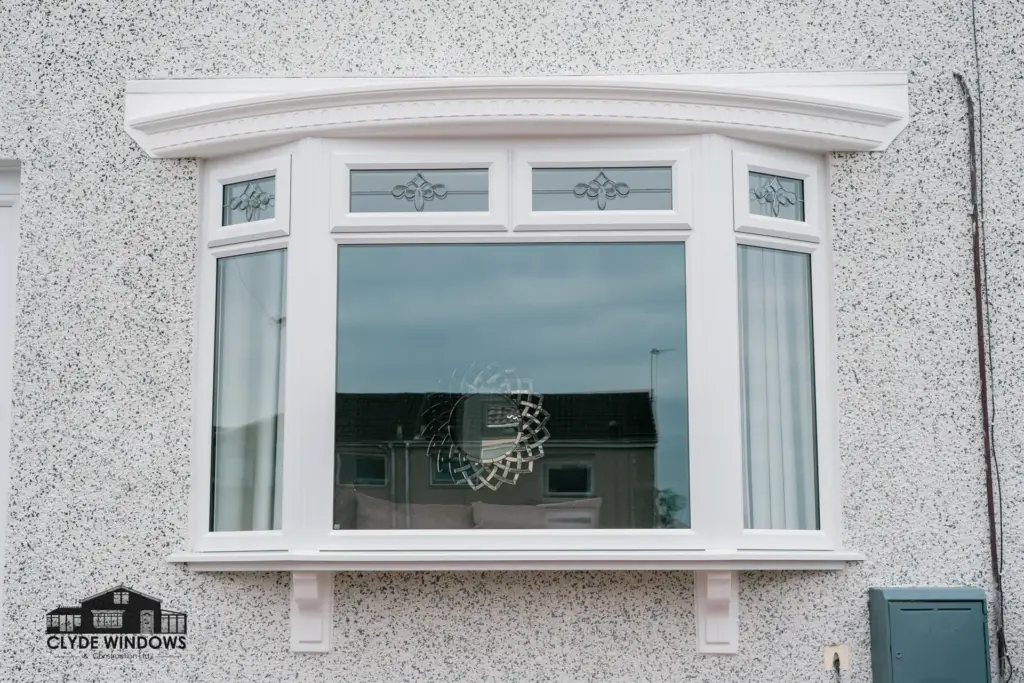What is PAS24?
PAS24 is the UK’s recognised security standard for windows and doors, designed to test how well they stand up against forced entry. In simple terms, it proves a product has been independently assessed for strength, durability, and resistance to attack. At Clyde Windows & Construction, our uPVC windows don’t just look good or save energy — they’re also built and tested to keep your home secure.
We achieve this through CENSolutions, who conduct the rigorous security testing, and our certification is backed by UKAS, the United Kingdom Accreditation Service, ensuring the highest independent verification. In addition, we are proud members of Secure by Design, the official UK Police initiative for designing out crime.
For more information:
Why PAS24 matters for your uPVC windows
PAS24 matters because it’s not just a standard feature of any window — it’s a rigorous security specification.
For you, this means your windows have been independently tested to resist forced entry, giving you protection that uncertified products simply don’t offer. Burglars often look for weak points, and PAS24-certified windows are designed to withstand common break-in attempts.
Beyond security, certification also ensures compliance with building regulations for new homes and extensions, giving you confidence that your investment is both safe and built to the highest UK standards.
What the PAS24 certification process involves for uPVC windows
PAS 24 window and door testing involves a rigorous series of physical and manual attack tests to determine a product’s resistance against opportunistic burglars. Conducted by independent, UKAS-accredited laboratories, the testing process ensures a product meets the minimum UK security benchmark for building regulations.
Security tests
Manual intervention tests
During a manual attack test, an engineer uses a standard toolkit of common burglary tools to probe for and exploit vulnerabilities in the window or door over a set time period.
- Manipulation tests: Assess whether the locking mechanisms or hinges can be disengaged or bypassed using tools like scrapers and credit cards without causing damage.
- Glazing removal tests: The engineer tries to remove the glazing bead and glass panel from the frame of the window or door using manual tools.
- Cutting tests: Tests the product’s resistance to cutting tools, with the product failing if the engineer can create a hole over 50mm in diameter.
- Cylinder and hardware attack (doors only): The lock cylinder, handles, and other security hardware are targeted with tools that simulate lock-snapping, drilling, and pulling.
Mechanical attack tests
These tests use calibrated machines to simulate forced entry attempts with high physical force.
- Mechanical loading: Replicates the prying action of a crowbar by applying increasing levels of force, often hundreds of kilograms, to the frame and locking points to test their strength and durability.
- Soft body impact: A 30kg sand-filled leather bag is dropped in a pendulum motion to simulate someone shoulder-barging or kicking the window or door.
- Hard body impact: A 50kg battering ram is released in a pendulum motion to test the resistance of a specific point on the frame or panel to a concentrated, heavy impact.
Functionality and durability tests
Beyond resisting a single attack, products must also demonstrate reliable performance over time.
- Cyclic testing: The window or door is subjected to thousands of open-and-close cycles to ensure that locks, hinges, and handles remain fully functional after repeated use.
- Operational function: Tests measure the force required to open and close the product to ensure security doesn’t compromise usability.
- Load bearing: A downward force is applied to test whether the window or door sags or binds, which can compromise its function and security.
Weather resistance tests
As part of the overall performance assessment, PAS 24 also requires testing for weather tightness to ensure the product remains durable and functional against the elements.
- The window or door is placed in a pressure chamber where varying levels of air pressure are applied to simulate wind pressure.
- During this test, water is sprayed onto the exterior surface to check for any leaks.
The certification outcome
PAS 24 is a pass-or-fail standard, with no grading system. If the product withstands all the specified attacks and performance tests, it receives certification. The certification process also involves ongoing surveillance by the UKAS-accredited body, which performs regular factory audits to ensure continued compliance with the standards

Certifications and Accreditations for our uPVC Windows
We take security, quality, and trust seriously. Here’s a full list of the certifications and accreditations our windows and services hold:
CMS 3329WDG (PVC-U Window & Door Stability)
Certified: Casement and Tilt & Turn Windows, Single and Double Doors
Windows & Doors made from PVC-U extruded hollow profiles compliant with
- BS 7412:2024
- EN 14351-1:2026 + A2:2016
- BS 7375-1:2015
- PAS24:2022
CMS 3329WDB (Factory Production Control)
Certified: Casement and Tilt & Turn Windows, Single and Double Doors
Windows and External Pedestrian Door sets
- BS 7412:2024 & BD EN 14351-1:2006
- EN 14351-1:2026 + A2:2016
- Factory Production Control
CMS 3329WDS (Weather performance)
Weather performance of windows and doors for domestic applications:
- BS 7412:2024
- BS EN 14351-1:2006 + A2:2016 / BS 6375-1:2015
Secure By Design License Holder
QCC Mark (PAS 24 Certification)
Description: Assessment for PAS 24 Product
Certificate Number: QCC 90277
Scope of Certification: Manufacture of PVCU Windows & Doors
